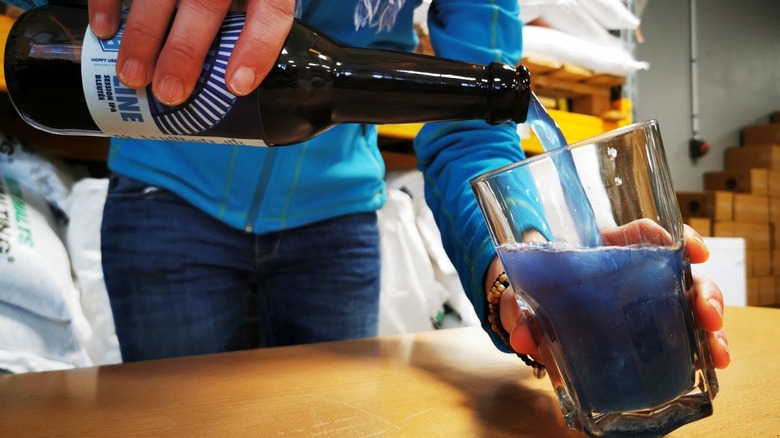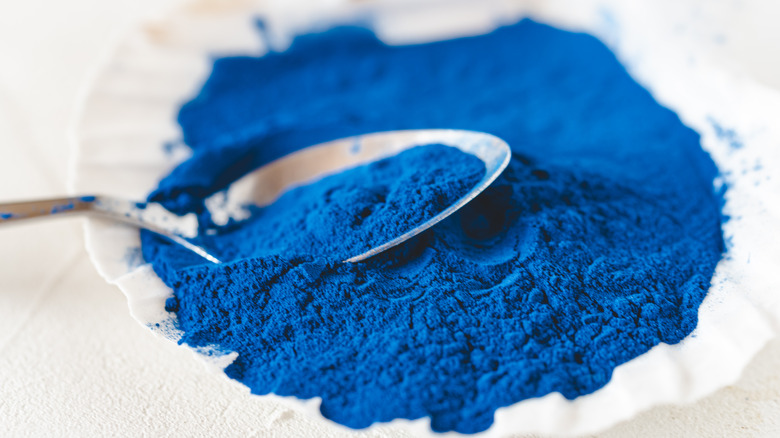Why This Blue Beer Has Major Health Benefits
The craft beer movement has introduced us to a diverse selection of brews over the past decade, ones with funky names and even funkier ingredients. There's a beer called Rocky Mountain Oyster Stout (get it?) distributed by Denver's Wynkoop Brewing Company made from "25 pounds of freshly sliced and roasted bull testicles." Virginia-based Smartmouth Brewing Co.'s Lucky Charms-inspired Saturday Morning IPA adds both toasted marshmallows and cereal marshmallows into the mash, per Esquire. Even more basic beers can have unexpected ingredients — lot of people even expressed surprise when Budweiser revealed that rice was a secret ingredient in its beer.
Some of these unique beers feel more gimmicky than anything else and probably aren't intended to have the staying power of a flagship product like, say, InBev's Budweiser. But one curious craft brew developed in Roubaix, France has become enormously popular in a short span, with demand outpacing supply. Created by Hoppy Urban Brew in collaboration with the company Etika Spirulina, the beer, called Line, incorporates spirulina as an ingredient, a type of blue-green algae that gives the brew a vivid blue color (via Food & Wine).
More than just a pretty color
Unlike the green beer swilled by the masses on St. Patrick's Day, which uses green food dye, Line's bluish tint is caused by the pigment phycocyanin found in the blue-green algae known as spirulina, according to Food & Wine. Like its green counterpart, the blue color doesn't impact the beer's flavor in any discernible way. It is made in the style of a session IPA, producing notes of citrus and a slight hoppiness.
Since it contains spirulina, the beer provides a number of potential health benefits, and clocking in at a modest 3% ABV (Alcohol by Volume), you're unlikely to get inebriated if you indulge in one or two. This particular type of algae, which is available in dietary supplements, is packed with protein and rich in vitamins, according to Medical News Today. A series of studies published through the National Library of Medicine have indicated that spirulina also has antioxidant and anti-inflammatory properties that can help strengthen the immune system.
Blue-green algae is often labeled a superfood as well, although this is not a medical or scientific term and can sometimes be associated with product marketing hype. Regardless, spirulina is nutrient-dense and low in calories, so "To your health" just might prove a fitting toast for those raising a glass of this quirky blue beer.

